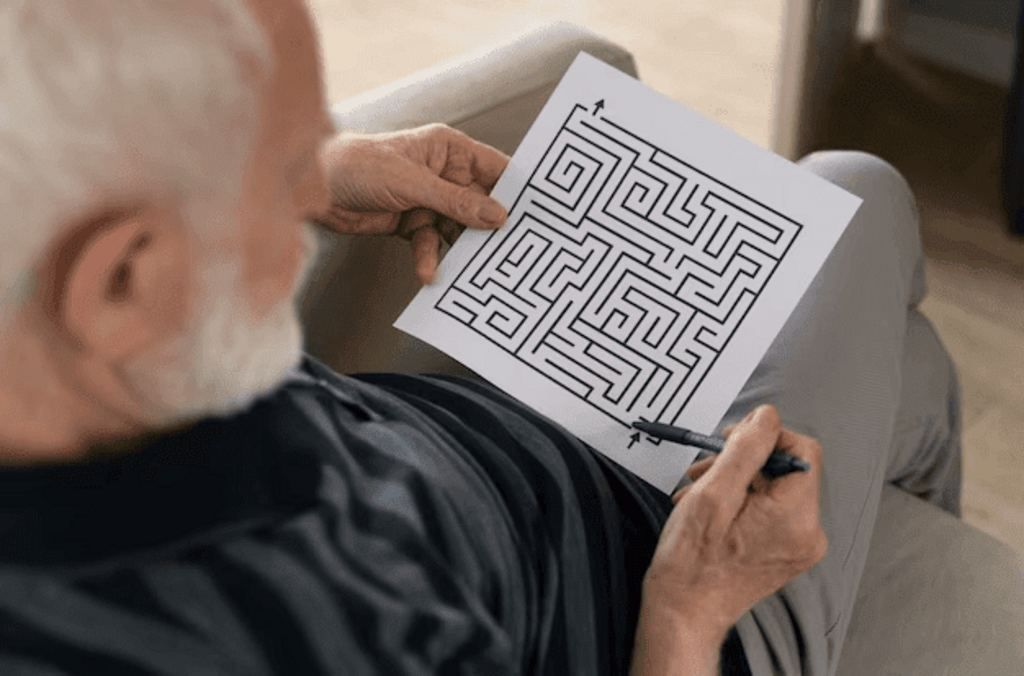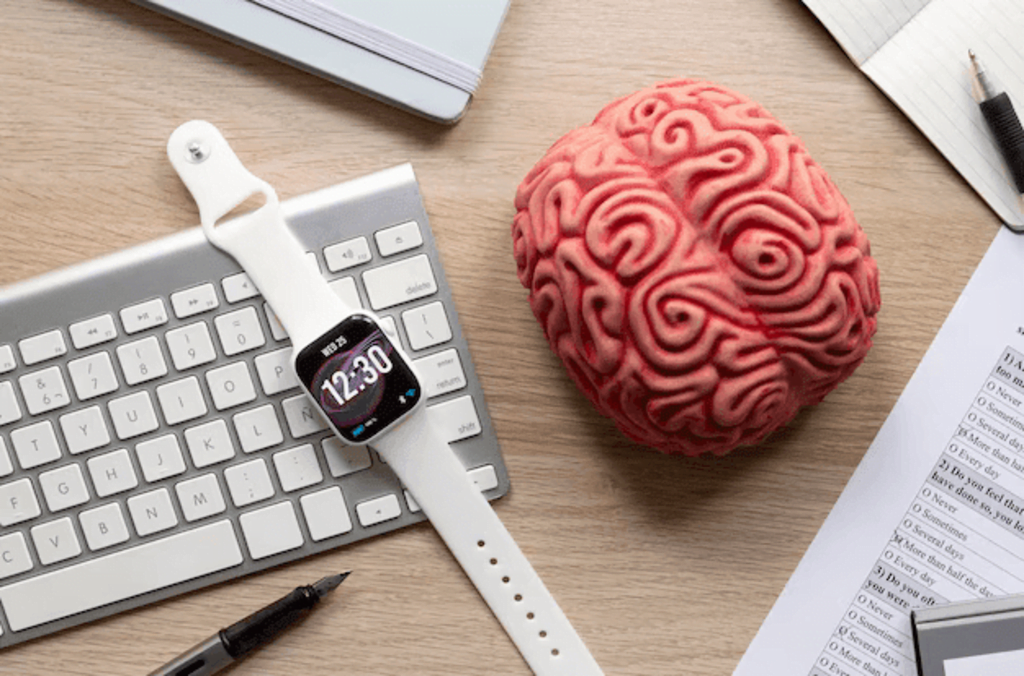Are you curious about your cognitive abilities and how they compare to others of your age? Mental age tests can be a useful tool for understanding your intellectual strengths and weaknesses. In this article, we’ll explore what a mental age test is and provide you with valuable tips to help you ace it.
What is a Mental Age Test?

A mental age test is an assessment tool that measures your cognitive abilities relative to your chronological age. It tries to assess one’s intelligence, problem-solving skills, and general capabilities of the mind. This concept of mental age developed from the work of French psychologist Alfred Binet and has since been extended into different tests used everywhere in the world.
Importance of Mental Age Tests
Mental age tests are a valuable tool for assessing the intellectual potential and cognitive functioning of an individual. They identify areas of strength and weakness, guide educational planning, and assist in determining the appropriate level of academic or vocational support needed. Additionally, mental age tests contribute to the understanding of intelligence and aid in research and statistical analyses.
How to Prepare for a Mental Age Test

Preparing well for a mental age test can work wonders for you. Here are the most important steps to prepare and increase your chances of succeeding:
Understanding the Format
Start by familiarizing yourself with the format of the mental age test you‘ll be taking. Different tests may have variations in structure and types of questions. Knowing the sections, time limits, and types of questions will enable you to strategize your approach to the test.
Gathering Relevant Information
Research the specific mental age test you will be taking and find out what topics it will cover and the scoring criteria. Look for sample questions or practice tests that are very similar to the actual exam. Knowing the subject areas of the test will help you target your preparation time.
Enhancing Cognitive Skills
Increasing your cognitive functions can greatly enhance your performance in a mental age test. Engage yourself in activities that will challenge your brain, like solving puzzles, crosswords, reading challenging literature, or learning a new language. Proper exercise and adequate sleep will also improve cognitive functioning.
Practicing with Sample Questions
Familiarize yourself with what kinds of questions are mostly asked in mental age tests. Practice solving similar ones under timed conditions to simulate the pressure and time constrictions. Analyze your performance and find improvement areas.
Tips to Ace a Mental Age Test

Having prepared well for the mental age test, you should now zero in on the strategies to help you excel during the test. The following tips might help:
Managing Time Effectively
When you sit for a mental age test, you have to master the art of time management. Take your time on each part of the paper according to the number of questions and their level of difficulty. Do not forget to set aside a few minutes to read through your answers.
Reading and Analyzing Questions Carefully
Carefully read each question and try to understand what it’s asking. Pay attention to all the details and be very cautious about any trap or trick hidden within the question. Take some time to analyze the options before a decision is made.
Utilizing Logical Reasoning
Use logical reasoning to arrive at the right answer when you do not know the answer to a question. Cross off obviously wrong or irrelevant choices to an answer. Sometimes, just using logical reasoning will lead you to the right choice.
Eliminating Wrong Options
If you cannot determine the right answer, try crossing off the wrong ones. The fewer choices you have to choose from, the more likely you are to choose the right answer if you do not know it.
Guessing Strategically
If you cannot determine the correct answer, use strategic guessing. Eliminate unlikely choices and make an educated guess based on the context or clues within the question.
How Can I Test My Mental Age?
- Mental Age Test Quiz: You can take an online multiple-choice quiz. It will ask you various questions. Your answers to those questions will help evaluate your mental age based on your attitudes, preferences, and reactions. Remember, for the most accurate results, go with your instinctive responses. Some popular mental age tests are the following:
- Mental Age Test: This quiz presents you with random questions and provides a simple number as your mental age.
- Accurate Mental Age Test: Based on research from 2021 and 2022, this test helps you find your real age.
- Psych Central’s Mental Age Test: Designed to determine whether you have a more youthful or mature attitude to life.
- Psychological Abilities Comparison: Mental age is defined as a measure of your psychological abilities compared to the average level reached by children of a certain age. For instance, if your mental age is 10, you are similar in your abilities to a 10-year-old, regardless of your actual chronological age.
How to find mental age without IQ?
Determine your mental age without taking any IQ tests. This will require considering various aspects of cognitive abilities, emotional intelligence, and life experiences. Some approaches are as follows:
- Self-Reflection and Awareness:
- Reflect on your thought processes, emotional responses, and problem-solving abilities. Are they more aligned with a younger or older mindset?
- Consider how you handle stress, adapt to change, and interact with others. These factors contribute to your mental age.
- Lifestyle and Interests:
- Your hobbies, interests, and curiosity might give you a mental age. Are you interested in learning new things? Do you like exploring diverse topics?
- Try to engage yourself in mind-challenging activities such as puzzles, reading, or learning a new language.
- Social and Emotional Intelligence:
- Look at your empathy, compassion, and understanding of others. Emotional maturity often goes hand in hand with mental age.
- How well do you understand social situations? Are you sensitive to nonverbal cues and emotions?
- Flexibility and Resilience:
- Mental age takes into account your ability to adapt to life‘s adversities. How do you handle setbacks, failures, and unexpected events?
- Resilience and flexibility are a characteristic of a more mature mental age.
- Life Experiences and Wisdom:
- Wisdom is gained from experiences, both good and bad. Think about what you have learned over the years.
- Wisdom is gained from experiences, both good and bad. Think about what you have learned over the years.

When preparing and taking a mental age test, it’s crucial to be aware of the pitfalls that may hinder one’s performance. Here are some mistakes to avoid:
- Wasting too much time thinking over simple questions.
- Skipping instructions and missing important information
- Failure to manage time will result in unanswered questions
- Second-guessing your instincts too much
- Failure to check your answers prior to submission
Conclusion
A mental age test provides a chance to see how good you are intellectually and, therefore, has the potential to reveal good insights about your intellectual strengths. Format, sample, and good techniques can also help one perform very well in this test. Avoid mistakes people make commonly and face them with confidence. Now come on and let your bright mind shine!
FAQs
Q: Are mental age tests accurate indicators of intelligence?
A: Mental age tests provide a general assessment of cognitive abilities but may not capture all aspects of intelligence. They offer valuable insights but should not be considered the sole measure of intelligence.
Q: Do mental age tests have age limitations?
A: Mental age tests can be taken by individuals of any age. Different tests may have specific age ranges or variations tailored to different age groups.
Q: Can you improve your mental age over time?
A: Yes, cognitive abilities can be enhanced through continuous learning, brain exercises, and personal development. Improvement in mental age is possible with effort and practice.
Q: What are the potential benefits of knowing your mental age?
A: Knowing your mental age can help you understand your cognitive strengths and weaknesses, guide educational and career choices, and identify areas where you can focus on personal growth.
Q: Should I be nervous about taking a mental age test?
A: It’s normal to feel a bit nervous before a test. However, try to approach it with a positive mindset and see it as an opportunity to challenge yourself and discover more about your capabilities.




 Afrikaans
Afrikaans Albanian
Albanian Amharic
Amharic Arabic
Arabic Armenian
Armenian Azerbaijani
Azerbaijani Basque
Basque Belarusian
Belarusian Bengali
Bengali Bosnian
Bosnian Bulgarian
Bulgarian Catalan
Catalan Cebuano
Cebuano Chichewa
Chichewa Chinese (Simplified)
Chinese (Simplified) Chinese (Traditional)
Chinese (Traditional) Corsican
Corsican Croatian
Croatian Czech
Czech Danish
Danish Dutch
Dutch English
English Esperanto
Esperanto Estonian
Estonian Filipino
Filipino Finnish
Finnish French
French Frisian
Frisian Galician
Galician Georgian
Georgian German
German Greek
Greek Gujarati
Gujarati Haitian Creole
Haitian Creole Hausa
Hausa Hawaiian
Hawaiian Hebrew
Hebrew Hindi
Hindi Hmong
Hmong Hungarian
Hungarian Icelandic
Icelandic Igbo
Igbo Indonesian
Indonesian Irish
Irish Italian
Italian Japanese
Japanese Javanese
Javanese Kannada
Kannada Kazakh
Kazakh Khmer
Khmer Korean
Korean Kurdish (Kurmanji)
Kurdish (Kurmanji) Kyrgyz
Kyrgyz Lao
Lao Latin
Latin Latvian
Latvian Lithuanian
Lithuanian Luxembourgish
Luxembourgish Macedonian
Macedonian Malagasy
Malagasy Malay
Malay Malayalam
Malayalam Maltese
Maltese Maori
Maori Marathi
Marathi Mongolian
Mongolian Myanmar (Burmese)
Myanmar (Burmese) Nepali
Nepali Norwegian
Norwegian Pashto
Pashto Persian
Persian Polish
Polish Portuguese
Portuguese Punjabi
Punjabi Romanian
Romanian Russian
Russian Samoan
Samoan Scottish Gaelic
Scottish Gaelic Serbian
Serbian Sesotho
Sesotho Shona
Shona Sindhi
Sindhi Sinhala
Sinhala Slovak
Slovak Slovenian
Slovenian Somali
Somali Spanish
Spanish Sundanese
Sundanese Swahili
Swahili Swedish
Swedish Tajik
Tajik Tamil
Tamil Telugu
Telugu Thai
Thai Turkish
Turkish Ukrainian
Ukrainian Urdu
Urdu Uzbek
Uzbek Vietnamese
Vietnamese Welsh
Welsh Xhosa
Xhosa Yiddish
Yiddish Yoruba
Yoruba Zulu
Zulu